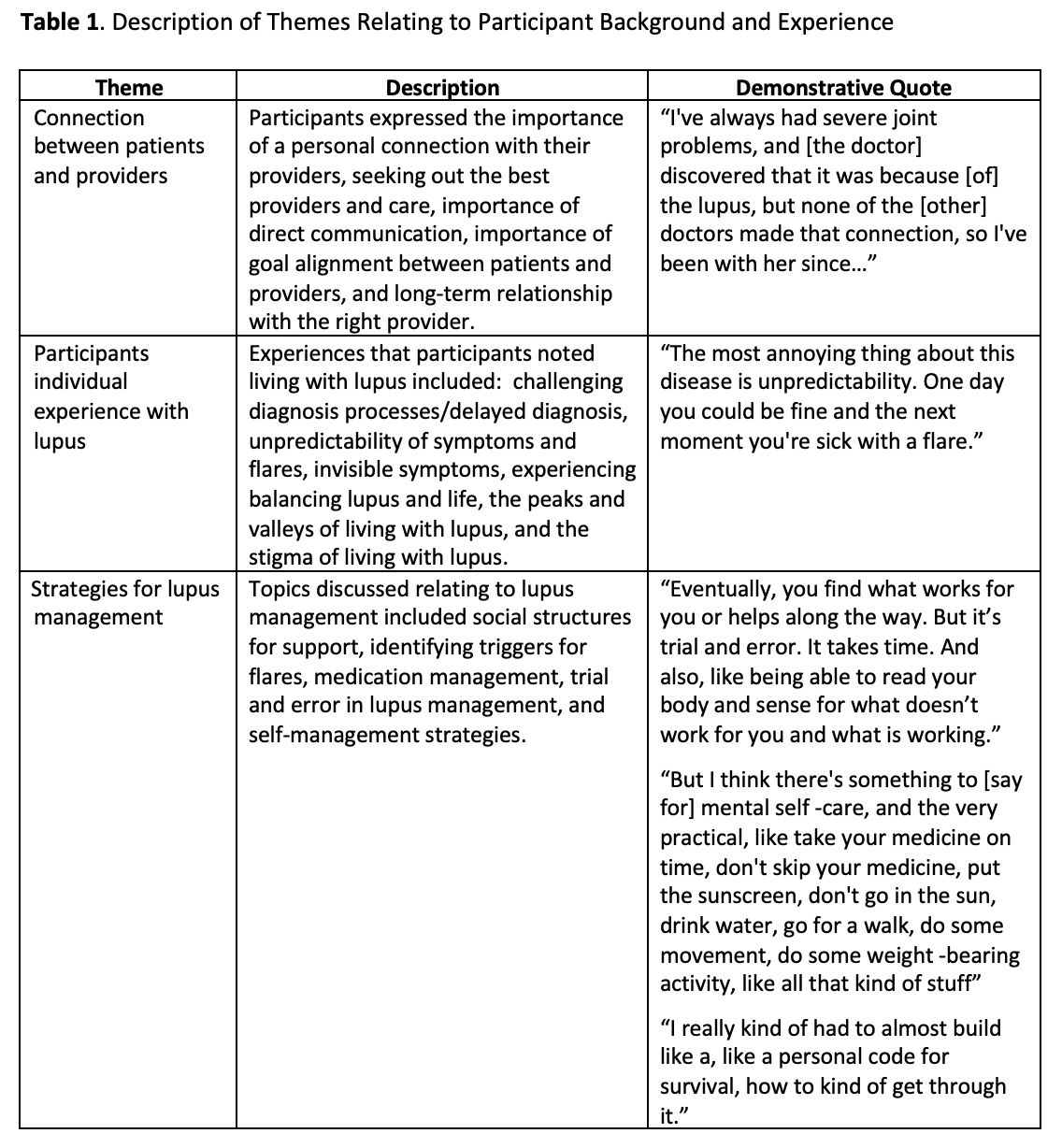Session Information
Date: Monday, October 27, 2025
Title: (1248–1271) Patient Outcomes, Preferences, & Attitudes Poster II
Session Type: Poster Session B
Session Time: 10:30AM-12:30PM
Background/Purpose: Self-management education and coaching are successful interventions for managing chronic health conditions. However, accessibility of in-person coaching is limited; digital coaching is available and has been tested in patients with multiple chronic health conditions, but not in systemic lupus erythematosus (SLE). Building on previous work in collaboration with the biomedical informatics team, the CUIMC Lupus Center team developed a lupus chatbot, LupusCoach. The fully scripted chatbot focuses on two areas: 1) weekly educational goal setting for lupus patients that includes lupus specific, lupus clinical trials, and general health information and 2) weekly health management goal setting related to lupus. Here we describe the qualitative feedback of two focus groups evaluating the content and goals for LupusCoach.
Methods: Ten diverse lupus patients (all patients met the 2019 ACR/EULAR criteria for SLE) were selected via convenience sampling to give feedback on the chatbot educational content and goals. We conducted two focus groups remotely using video-conferencing software. The focus groups were audio recorded and transcribed verbatim. Reflective thematic analysis was conducted using the NVIVO software.
Results: Thematic analysis across patients from both focus groups identified several main themes relating to participant background and chatbot feedback. Participant background themes included connection between patients and providers, participants’ individual experiences with lupus, and strategies for lupus management (Table 1). Themes relating to chatbot feedback included desired features and capabilities, experiences with technology, input on goals and action plans, discussion about informational messages, and user expectations of technology (Table 2). Based on these themes, we made adjustments to LupusCoach, specifically by tailoring action plans to different levels of effort. An on-line support community forum was requested, and therefore additional resources for lupus patients were listed on the accompanying FAQ/further information website for LupusCoach.
Conclusion: Overall, patients gave positive feedback both on the contents and goals of LupusCoach. The next step is to beta-test the chatbot and survey a larger group of 10-20 patients, using pre/posttest method, questionnaires, and surveying for satisfaction.
 Table 1. Description of Themes Relating to Participant Background and Experience
Table 1. Description of Themes Relating to Participant Background and Experience
.jpg) Table 2. Description of Themes Relating to Chatbot Feedback
Table 2. Description of Themes Relating to Chatbot Feedback
To cite this abstract in AMA style:
Khalili L, Desai P, Souvignier M, Pichon A, Suh S, Nordmann-Gomes A, Mamykina L, Askanase A. Development of the LupusCoach Chatbot: Results of a Focus Group [abstract]. Arthritis Rheumatol. 2025; 77 (suppl 9). https://acrabstracts.org/abstract/development-of-the-lupuscoach-chatbot-results-of-a-focus-group/. Accessed .« Back to ACR Convergence 2025
ACR Meeting Abstracts - https://acrabstracts.org/abstract/development-of-the-lupuscoach-chatbot-results-of-a-focus-group/
